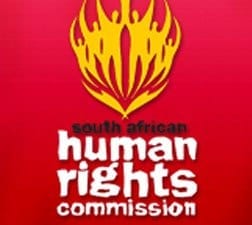The Department of Water Affairs has slammed the South African Human Rights Commission’s (SAHRC) 2014 report on water and sanitation for being outdated, baseless and misleading.
The SAHRC recently released its Report on the Right to Access Sufficient Water and Decent Sanitation in South Africa: 2014 in Cape Town. The reportwas dedicated to six-year-old Michael Komape who died in February after falling into a pit toilet at his school. Findings The report found that government departments and the private sector mainly view water as an economic good or commodity. As a result, most of South Africa’s water is used by business, especially agribusiness, mining and other industries, at a relatively lower cost per kilolitre than poor households. “By not holding businesses that pollute and waste water to account, government is not protecting water as a basic human right. At the same time, people who cannot afford to pay for water are denied access and their bodies bear the cost through illness linked to serious chemical pollution,” the report says. The report maintains that there is a lack of a human rightsbased approach to the delivery of water and sanitation services. This relates to the principles of transparency and public participation, in the delivery of basic services and access to information. It also sees the need for government to evaluate the current models of governance and funding to address failures in governance and budgeting.The commission held hearings in every province. In all nine provincial hearings, people complained of the poor condition of waste and water treatment plants and many municipalities said that water treatment plants were collapsing because of the heavy loads of treatment required. The poor quality of infrastructure was identified as a key issue with access to water. Participants at the hearings complained of an apparent lack of monitoring and evaluation by government, particularly of external contractors, as well as cases of corruption and maladministration.
Government’s response The Department of Water Affairs (DWA) has rejected the report, labelling it as outdated, baseless and misleading. The department’s media liaison officer Themba Khumalo told Ground Up that the DWA objected to the report because the hearings were held in 2012and not 2014. Khumalo further said the report only focused on areas with poor access to services but the commission never consulted with people who had benefited. “The report says there are challenges in all nine provinces, but there are successes as well,” he said.






